brand
COVID 19: Decision Necessary to Sustain Business-Wigwe
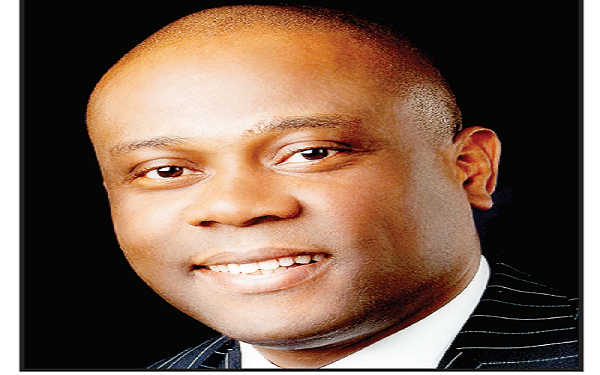
He started out his career at the Coopers and Lybrand Associates, Lagos, as a management consultant. He soon got to be a Chartered Accountant and subsequently went to work at GTBank. In his time at the bank, spanning over a decade, Herbert rose through the ranks to become the Executive Director Corporate and Investment Banking.
By his admission, he had seen some ups and downs, had some fears, experienced some turbulence and has equally tasted some very good side to the bargain. “There have also been very trying times. There have been days when we’ve had to roll on the floor and pray, and just beg God that certain things shouldn’t happen, when there’s been big changes in the macro.
“There was some information about an exposure which we had. The communication was that it was not a performing loan, and it was not true. Because of the size of the loan, it could have triggered an issue. We were a much smaller institution. And our reputation, particularly in banking, could affect the overall franchise. It could affect our stakeholders, our customers, most importantly our people, because they were going to be concerned about our professional future.”
He was quite concerned, he admitted at a point in time. I was absolutely petrified of failure and would do everything possible not to find myself in certain circumstances, he said. “People ask us why we spend so much time working. Apart from the fact that we truly enjoy what we are doing, I enjoy every second of what I do, but the thought of failure is something I don’t want to dream of. So, we are perpetually seeking ways to better prepare ourselves for those difficult moments in life.
‘’There were people who thought, ‘how are these guys going to pull it together?’ There were those who thought, ‘young people don’t work together very well, they are likely to quarrel.’ Several people thought like that, some also said: ‘It’s just a matter of time, something will happen.’
‘’In fact, there were some consulting firms that said they were not going to take on our mandate because these guys are just a bit too young for what they want to do. So that was the kind of vibe that we got, adding however that there were “more days of celebration with each passing thing, each success makes us so much more confident. So, it’s been mixed feelings, on the whole, there’s so much thanksgiving to God.’’ ”
That is largely the trajectory of the corporate world. Some prepare for it, while for some others, it is thrust upon them. What one makes of it is made manifest in space of time.
Within the period that he began to toil in the banking space, Wigwe had weathered some storms no doubt. In the period he rose to become an Executive Director in GTBank, to when he and his co-traveller, Aig-Imoukhuede bought ‘little’ Access Bank, and then went on to acquire Intercontinental Bank and very lately, Diamond Bank and Transnational Bank of Kenya, Wigwe in the course of these transactions, would have taken some hard decisions, rightly so, in the line of duty. Having therefore been acquainted with these developments over time in addition to other boardroom challenges, it has become a matter of routine, doubtless, that the challenges thrown-up by the outbreak of the COVID-19, serious as they are (make no mistake about that for no sector is spared), were not expected to sweep Wigwe of his feet. He has been prepared for a time like this.
Implications of COVID-19
As pervading and dangerous the COVID-19 pandemic impacts are, they bear repetition so that no one is left in doubt as to the danger the world faces.The pandemic, not being a financial issues per se, yet its impact has consumed and crippled all businesses, the banking industry not being an exception. The global business community, be it in the developed world, developing, countries, or emerging markets have been brought to their knees. Job loses every where are numerous. In the US where data is readily available, over 30 million people have filed for unemployment benefits, while in April alone, over 20.5 million were reported to be out of jobs and still counting. Spiralling death tolls have become the new normal, medicament and health care facilities have been stretched to their limits, even at that, no one knows when this shall come to an end. Uncertainty is now the new normal.
In situations like this, corporate chiefs and political leaders are taking proactive steps and making moves in the expectation that per chance, they may strike the cord that would mitigate the devastating impact of this ravaging scourge. To do nothing is to wait for a certain death, or imminent disaster. In Britain for instance, it was announced a few weeks ago that the government has offered to stand in for workers who were asked to stay at home with a promise to underwrite their salaries for a period of three months in the first instance. Some other developed countries have also offered similar, or other alternatives. Also in the US, Congress approved a $6 billion package that entitled households to about $2,000 monthly, with a proviso that it will consider a review upward as events unfold. So far, none of these measures put forward by the developed countries is available at home, or in most third world countries, save for pronouncements of palliatives being provided here and there with no specific modus operandi of how the service is administered.
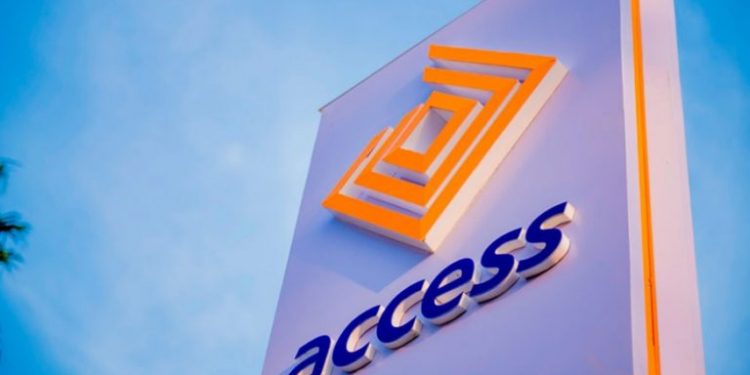
‘We’ll not sack workers’
While some have taken to laying off employees, others have put a cut on the monthly payroll, Access Bank has taken the empathetic route of trimming operating costs instead of outright workforce downsising.
Wigwe, in statement, assured that Access Bank has put in place a robust business continuity process that is enough to sustain the bank’s performance going forward, saying the bank “was well prepared for COVID-19 early enough and created ways of working from home and working with our customers. We set up links with our customers and devised ways of reaching out to them three or four times a day. This happened even before we started working with the larger society and it enabled us to start fighting this pandemic”.
He said to remain accountable to shareholders and keep the business running, it has become necessary to rationalise cost structure, including salary and even service providers. In stating the obvious, Wigwe said no business was having it easy at this time. He said top global enterprises have taken various measures to ensure that they stay afloat of the situation, pointing out that this is a time when we all need to be more understanding and work towards eradicating the virus so that we can continue living our normal lives. Sometimes, everyone has to endure some discomfort in order to ensure that no one is left behind, and this sums up the rationale behind Access Bank’s decision, because in his words, “all shareholders, including employees, deserve empathy and consideration”.
Wigwe also took the exceptional step of leading by example. He offered to cut his pay by 40 per cent over the period that the pandemic is in force, saying the measure will be graduated down the line, with the assurance that no staff member would lose their jobs because of COVID-19.
He said: “To keep to this commitment, we have made a decision at the management level to restructure salaries. This will start with me, who will have a salary restructure of 40 per cent, while other employees will have their salaries slightly reduced as well. It has become essential to take this decision in the interim, considering the economic realities and hope to reverse it as soon as economic activities become stable.
“As an employer of over 30,000 employees, our employees are our greatest assets. We understand how difficult these times are and we are determined to ensure that our staff remain in employment,” Wigwe said in the statement.
Corporate social responsibility
Access Bank has been ranked as the overall best company in Corporate Social Responsibility and Sustainability in Nigeria for the year 2019 based on a result drawn from impact assessments of 910 organizations operating in Nigeria over the last 13 years. The ranking took into cognizance Access Bank’s participation in impactful national projects, its recognitions and ratings from international award bodies, investment in CSR and sustainability.
The bank has in place a corporate strategy and philosophy which places sustainability at its core, ensuring that projects and initiatives undertaken by the bank are impactful and strategically linked with the United Nations Sustainable Development Goals. Under Wigwe’s leadership, the bank has also recorded outstanding results by undertaking several initiatives across the country.
Having launched the Nigerian Green Bond Market Development Programme in June 2018, Access Bank’s determination to promote sustainable growth through funding of projects at a lower cost of capital, led to the issuance of a N15 billion (USD41 million) corporate green bond in 2019. The issue is the first-ever Climate Bonds Initiative certified corporate green bond in Africa.
He certainly knows what it takes to be a leader. His work attitude, ethics and transparency and strategies in navigating uncharted terrain and circumstances in the global economy, have attested to him being a proven, tested and pragmatic leader. His approach to amicably resolving the challenges thrown up by the coronavirus scourge in marrying the corporate interest with those of the workforce, and leaving all interests well protected, should be commended. He rose to the challenge of the moment and proactively adopted measures to keep the financial institution going, not only that, but strong and competitive.Transparency is a strong virtue of leadership.
Clearly, one thing the ravaging pandemic has revealed, according to Barclays Bank boss, Jes Staley, is that having thousands of bank workers in big, expensive city offices, “may be a thing of the past”.
Staley pointed out that about 70,000 of Barclays’ staff members worldwide are working from home due to coronavirus lockdown measures, leading the bank to rethink its long-term strategy. So, it is not just Wigwe taking proactive and pragmatic steps to remain competitive, he is sure having a head start here by his bold and pragmatic approach.
brand
Fidelity Bank Named “Nigeria’s Best Private Bank” at Euromoney Awards

 Tier one bank, Fidelity Bank PLC, has been named “Nigeria’s Best Private Bank” at the prestigious Euromoney Awards 2025. The recognition was formally unveiled at the awards ceremony held recently at The Savoy in London.
Tier one bank, Fidelity Bank PLC, has been named “Nigeria’s Best Private Bank” at the prestigious Euromoney Awards 2025. The recognition was formally unveiled at the awards ceremony held recently at The Savoy in London.
The Euromoney Awards for Excellence are prestigious annual honors and a benchmark for excellence in the global banking and finance industry. Established by Euromoney magazine, the awards highlight outstanding performance, innovation, leadership, and service excellence across various financial sectors and regions.
Commenting on the award, Managing Director and Chief Executive Officer of Fidelity Bank PLC, Dr. Nneka Onyeali-Ikpe said, “We are truly honored to be recognized by Euromoney as Nigeria’s Best Private Bank. This award is a testament to the hard work and dedication of our staff as well as our strong commitment to delivering premium wealth management solutions, personalized financial advisory, and superior client service to high-net-worth individuals in Nigeria and beyond.”
The Euromoney Awards are among the most highly respected in the global financial industry. Winning such an award for its private banking business further builds on Fidelity Bank’s growing reputation as one of Nigeria’s most trusted and customer-centric financial institutions.
According to a statement on Euromoney’s website, “The bank’s commitment to providing specialised credit solutions also sets it apart. Clients benefit from tailored lending options, including asset-backed lending, real estate financing, and customised credit facilities. These solutions are structured to support complex financial needs while ensuring flexibility and ease.”
Fidelity Bank Plc is a full-fledged commercial bank with over 9.1 million customers who are serviced across its 251 business offices and various digital banking channels in Nigeria and the United Kingdom.
The Bank is the recipient of multiple local and international Awards, including the 2024 Excellence in Digital Transformation & MSME Banking Award by BusinessDay Banks and Financial Institutions (BAFI) Awards; the 2024 Most Innovative Mobile Banking Application award for its Fidelity Mobile App by Global Business Outlook, and the 2024 Most Innovative Investment Banking Service Provider award by Global Brands Magazine. Additionally, the Bank was recognized as the Best Bank for SMEs in Nigeria by the Euromoney Awards for Excellence and as the Export Financing Bank of the Year by the BusinessDay Banks and Financial Institutions (BAFI) Awards.
brand
Access Holdings Records 88% Growth in Gross Earnings to N4.878 Trillion
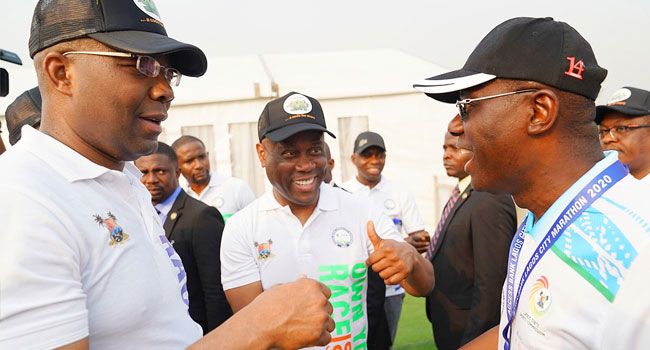
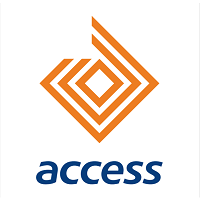 Access Holdings PLC (“the Group”) (Bloomberg: ACCESSCO), a leading African financial services group, today, announced its audited financial results for the full year ended December 31, 2024. The Group delivered 88% year-on-year growth in gross earnings, rising from N2.594 trillion in 2023 to N4.878 trillion in 2024. The strong performance was driven by diversified income streams, with interest income growing by 110% to N3.480 trillion and non-interest income increasing by 47.8% to N1.397 trillion, supported by robust retail banking activities, digital expansion, and a dynamic trading strategy.Profit before tax (PBT) increased by 19% to N867.0 billion, while profit after tax (PAT) rose to N642.2 billion, despite inflationary and macroeconomic challenges. Total assets grew by 55.5% to N41.498 trillion, and customer deposits rose by 47% to N22.525 trillion. Shareholders’ funds also increased by 72%, reaching N3.760 trillion.In 2024, the Group made significant social and environmental impact across the continent, touching millions of lives and earning multiple industry accolades. Through various corporate social investment initiatives in education, entrepreneurship, health, and the environment, the Group reached over 21 million individuals across Africa. Its employee wellness programmes also covered 28,000 staff across operating entities. Access Bank, the flagship subsidiary, through its W-Initiative, disbursed loans to over a million women-led SMEs, advancing financial inclusion and gender empowerment.The Group’s efforts attracted prestigious recognition and awards, including three Euromoney Awards for Excellence (notably ‘Best Bank for ESG’); International Finance Award for ‘Most Innovative Bank for Community Development and Community Engagement’; and World Economic Magazine Award for ‘Most Sustainable Bank’.In terms of economic sustainability, Access Bank recorded strong strides through its Economic, Social and Governance (ESG) programmes. It facilitated $437.42 million in DFI inflows to support MSMEs across Africa, disbursed 1.6 million digital loans to low-income individuals, and booked its first N1.4 billion diaspora mortgage loan.The Group also achieved a 13.4% reduction in operational emissions, planted 57,302 trees, and enabled solar power adoption for 226 homes and businesses. Its headquarters was awarded the IFC EDGE (Excellence in Design for Greater Efficiencies) Green Building Certification for sustainable design and construction
Access Holdings PLC (“the Group”) (Bloomberg: ACCESSCO), a leading African financial services group, today, announced its audited financial results for the full year ended December 31, 2024. The Group delivered 88% year-on-year growth in gross earnings, rising from N2.594 trillion in 2023 to N4.878 trillion in 2024. The strong performance was driven by diversified income streams, with interest income growing by 110% to N3.480 trillion and non-interest income increasing by 47.8% to N1.397 trillion, supported by robust retail banking activities, digital expansion, and a dynamic trading strategy.Profit before tax (PBT) increased by 19% to N867.0 billion, while profit after tax (PAT) rose to N642.2 billion, despite inflationary and macroeconomic challenges. Total assets grew by 55.5% to N41.498 trillion, and customer deposits rose by 47% to N22.525 trillion. Shareholders’ funds also increased by 72%, reaching N3.760 trillion.In 2024, the Group made significant social and environmental impact across the continent, touching millions of lives and earning multiple industry accolades. Through various corporate social investment initiatives in education, entrepreneurship, health, and the environment, the Group reached over 21 million individuals across Africa. Its employee wellness programmes also covered 28,000 staff across operating entities. Access Bank, the flagship subsidiary, through its W-Initiative, disbursed loans to over a million women-led SMEs, advancing financial inclusion and gender empowerment.The Group’s efforts attracted prestigious recognition and awards, including three Euromoney Awards for Excellence (notably ‘Best Bank for ESG’); International Finance Award for ‘Most Innovative Bank for Community Development and Community Engagement’; and World Economic Magazine Award for ‘Most Sustainable Bank’.In terms of economic sustainability, Access Bank recorded strong strides through its Economic, Social and Governance (ESG) programmes. It facilitated $437.42 million in DFI inflows to support MSMEs across Africa, disbursed 1.6 million digital loans to low-income individuals, and booked its first N1.4 billion diaspora mortgage loan.The Group also achieved a 13.4% reduction in operational emissions, planted 57,302 trees, and enabled solar power adoption for 226 homes and businesses. Its headquarters was awarded the IFC EDGE (Excellence in Design for Greater Efficiencies) Green Building Certification for sustainable design and construction
standards.In addition, Access employees contributed 228,500 volunteer hours to various community development programmes, reinforcing the Group’s commitment to inclusive and purpose-driven impact.The Group is focused on delivering sustainable returns to shareholders, while reinvesting in innovation, infrastructure, and cross-border expansion. Its banking subsidiary launched operations in Hong Kong, received regulatory approval in Malta, and successfully integrated its operations in Zambia and Tanzania, expanding its global footprint.Access Bank posted significant gains across all performance metrics, with interest income growing by 110% and fees and commissions rising by 81%. International subsidiaries contributed 48.5% to the banking segment’s PBT, demonstrating strong execution across key markets.In 2024, Access Holdings also became the first institution to meet the Central Bank of Nigeria’s recapitalisation directive, raising 351 billion through a rights issue. The₦ proceeds are being strategically deployed to strengthen digital infrastructure, enhance liquidity, and fuel long-term growth.Looking ahead, Access Holdings remains committed to building a more inclusive, sustainable, and profitable future, delivering delivering value not just to shareholders, but to society and the environment at large.
brand
JIM OVIA ADMITTED TO THE FREEDOM OF THE CITY OF LONDON

 L-R: Chairman, Access Holdings Plc, Aigboje Aig-Imoukhuede, CFR; His Eminence John Cardinal Onaiyekan; President of Dangote Group, Alhaji Aliko Dangote, GCON; Founder and Chairman of Zenith Bank Plc, Jim Ovia, CFR; Governor of Lagos State, Mr. Babajide Sanwo-Olu; and Governor of Delta State, Rt.Hon. (Elder) Sherrif Oborevwori, during the admission of Jim Ovia to the Freedom of the City of London in the United Kingdom, on Monday.
L-R: Chairman, Access Holdings Plc, Aigboje Aig-Imoukhuede, CFR; His Eminence John Cardinal Onaiyekan; President of Dangote Group, Alhaji Aliko Dangote, GCON; Founder and Chairman of Zenith Bank Plc, Jim Ovia, CFR; Governor of Lagos State, Mr. Babajide Sanwo-Olu; and Governor of Delta State, Rt.Hon. (Elder) Sherrif Oborevwori, during the admission of Jim Ovia to the Freedom of the City of London in the United Kingdom, on Monday.
The Founder and Chairman of Zenith Bank Plc, Jim Ovia, CFR, has been admitted to the prestigious Freedom of the City of London in a distinguished ceremony which held at the Mansion House, City of London on Monday, April 7, 2025. This prestigious accolade is a testament to Mr. Ovia’s exceptional contributions to the global financial landscape, unwavering commitment to fostering economic development, and dedication to philanthropic endeavours that have positively impacted countless lives.The Freedom of the City of London, a time-honoured tradition dating back to the 13th century, is one of the oldest surviving ceremonies in the United Kingdom. Historically, it granted freemen certain rights and privileges within the city. Today, it stands as a symbolic recognition of individuals who have made outstanding contributions to London or the wider society. This honour places Mr. Ovia among a distinguished group of recipients, which includes notable figures from various fields such as Nelson Mandela, Bill Gates, Sir Winston Churchill, Desmond Tutu, Harry Kane, Morgan Freeman and Ian Wright.Commenting on his new status as a Freeman of the City of London, the distinguished honoree, Jim Ovia, CFR said “It is indeed a great honour to be admitted to the prestigious Freedom of the City of London. This is not just a recognition of my personal achievements, but also a testament to the tireless efforts of the entire Zenith team who have worked diligently to establish our institution as a leading force in global finance. I am proud to be part of a legacy that celebrates innovation, excellence and the spirit of entrepreneurship. I dedicate this to the people of Nigeria and Africa who continue to inspire me with their resilience and determination. I look forward to continuing to play a role in shaping the economic landscape of our great continent and beyond.”Joining the nation in congratulating Mr. Ovia, President Bola Tinubu, through a press statement by the Special Adviser to the President on Information and Strategy, Bayo Onanuga, commended Mr. Ovia for being a distinguished ambassador of the nation’s private sector. He described the honour as a fitting recognition of his exceptional contributions to business, innovation, and technology, as well as for his role in shaping Nigeria’s financial landscape and strengthening economic ties between Africa and the rest of the world. According to him, “This honour is a testament to your unwavering commitment to excellence, your pioneering role in the growth of the financial services sector in Nigeria, and your visionary leadership that continues to inspire generations. As an accomplished entrepreneur and advocate of innovation-driven development, your recognition in the City of London affirms the global relevance of Nigerian excellence and enterprise”.Dignitaries at the ceremony include Former President of Nigeria, Chief Olusegun Obasanjo, GCFR; Governor of Lagos State, Mr. Babajide Sanwo-olu; Governor of Delta State, Rt.Hon. (Elder) Sherrif Oborevwori; Governor of Enugu State, Dr. Peter Mbah; President of Dangote Group, Alhaji Aliko Dangote, GCON; Minister of State for Finance, Dr. Doris Uzoka-Anite; Minister of Industry, Trade and Investment, Dr. Jumoke Oduwole, MFR; Minister of State for Foreign Affairs, Bianca Odumegwu-Ojukwu; Oba of Oniru, Oba Abdulwasiu Lawal; Group Managing Director, TGI Group of Companies, Rahul Savara; Obi of Onitsha, Igwe Nnaemeka Alfred Achebe, CFR, and His Eminence John Cardinal Onaiyekan, who joined Zenith Bank Executives in celebrating this significant milestone.This well-deserved recognition rides on the back of many other prestigious awards that Mr. Ovia has received for his outstanding contributions to banking, education and philanthropy including conferment of Commander of the Federal Republic (CFR) & National Productivity Order of Merit (NPOM) Award in 2022 by the Federal Government of Nigeria. He was also named the Banker of the Year in 2007 and Titan of the year in 2024 by ThisDay Newspaper, and received the African Business Leader Award from the Africa-America Institute. He received honorary degrees from the University of Lagos as well as from the University of Nigeria, Nsukka and was recognized by Forbes Africa as one of the most influential figures in banking.
-

 news4 years ago
news4 years agoUPDATE: #ENDSARS: CCTV footage of Lekki shootings intact – Says Sanwo – Olu
-

 news1 year ago
news1 year agoEnvironmental Pollutions : OGONI COMMUNITY CRIES OUT, THREATENS TO SHUT DOWN FIRSTBANK,SHELL OIL COMPANY OPERATIONS FOR NOT PAYING COURT AWARD
-
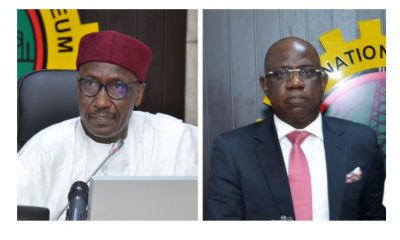
 news3 weeks ago
news3 weeks agoBreaking : TInubu appoints Bashir Ojulari as new CEO group of NNPC and GMD mele kyari get sacked, Says Onanuga
-

 interview3 weeks ago
interview3 weeks agoNIGERIA MECHANIZED AGRO EXTENSION SERVICE PROJECT, A STRATEGIC MOVE TO ALLEVIATE POVERTY – DR. AMINU ABDULKADIR
-

 news3 weeks ago
news3 weeks agoUpdate : Fubara ordered bombing of Rivers Assembly, I am not under duress I resigned, Says ex-Rivers HoS Nwaeke
-

 news1 week ago
news1 week agoNothing new in FBI report on Tinubu, says Onanuga
-

 news3 weeks ago
news3 weeks agoTinubu commended Nandap for her leadership, extends Comptroller-General tenure till 2026, says Onanuga
-
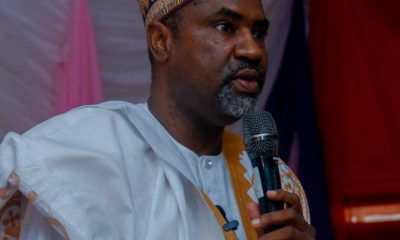
 news5 days ago
news5 days agoAirlin Advocacy Commissions Jos Office, Targets 7m Members By Next Elections,Says Mohammed Gamawa


